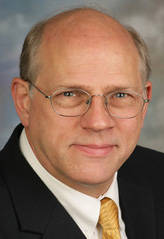What was the reason for the Permanent Fund? Is our Permanent Fund Dividend (PFD) a constitutional right? Should it be? Is it yours, ours, or the government’s? Should Permanent Fund earnings only be used to pay dividends?
We need to solve these questions.
Established by a vote of the people in 1976, the Permanent Fund came into being. The fund is in the Alaska Constitution, Article 9 Sec. 15: “All income from the permanent fund shall be deposited in the general fund unless otherwise provided by law.”
The support statement in the 1976 election pamphlet for the Permanent Fund constitutional amendment read in part: “Now is the time to ask ourselves the question: ‘When the oil and gas is depleted, where will the funds to feed our giant government come from?’ The answer is: ‘the Permanent Fund.’”
That is why we have a Permanent Fund.
The PFD is a statutory entitlement created by the Legislature in 1981 and reworked by the 1982 Zobel v. Williams Supreme Court Case. The entitlement was created by the Legislature and can be changed by the Legislature, as it has been many times.
Therefore, the dividend is not a constitutional right, but a statutory entitlement created by the Legislature to share our resource wealth evenly and with every Alaskan.
Should the dividend be enshrined in the constitution? Not in my view. Should we elevate the right to a cash payment from our sovereign wealth to the same level as freedom of speech or the right to keep and bear arms? I think that would be a huge mistake.
Truly, Alaska’s vast resources are held in common, so also is our government. We all share in the wealth and responsibilities of governance.
In our statehood compact we agreed with the federal government that our resources, land and water would be held in common to pay for a government that Alaska’s small population could not sustain.
Therefore, our resources and our government — public safety, schools, land management, game management, etc. — are in common, as well. We enjoy great benefits and shoulder significant responsibilities.
We often put a distinction between us and government and for good reason. Sometimes our government is growing, uncontrollable and overbearing, a want-to-be master rather than a responsive, lean, servant to the people. Yet the government of Alaska is still ours. It is “we,” not “us and them.”
Debate is important, and it is in full-swing over our dividend, so please accept this opinion in honest debate.
Should the earnings of the Permanent Fund only be used for a dividend? Not in my opinion. We would then have a serious IRS problem on our hands because the fund would be a private use only fund and potentially lose its tax-exempt status.
Sharing the wealth of our Permanent Fund earnings is a good thing, and so is using earnings to fund government.
This is a critical year for Alaskans. Oil income remains low, and our savings can’t sustain us any longer. We need to figure out the wisest way to use the earnings of the Permanent Fund to keep our government funded along with our oil wealth and the other available taxes.
Enshrining the dividend into our constitution won’t work because the dividend would overrule all other uses; just using the earning reserves has an impact on the dividend. A clear and simple calculation is needed.
The governor’s veto of the dividend before the statutes were changed was a huge violation to Alaskans involved in policy, which disappointed me.
I favor an endowment approach that puts the corpus (constitutional permanent fund) and the earnings reserve (statutory earnings not yet obligated) into a management fund together that lets only 4 to 5 percent of the entire value available for us to use for dividends and government.
We should not accept the rewriting of history to make political points. Rather, we should roll up our sleeves and work for the best solutions for now and following generations.
Therefore, I am in favor of putting an endowment method into our constitution and having a statutory directive for general funds to our budget and paying a dividend.
• Sen. John Coghill has served as North Pole’s state senator since October 2009 and is currently chairman of the Senate Judiciary Committee.

